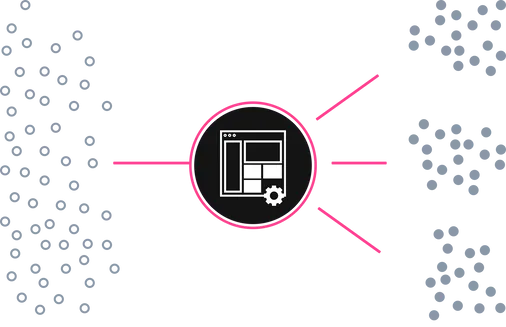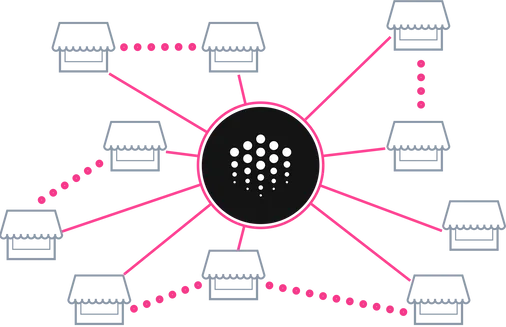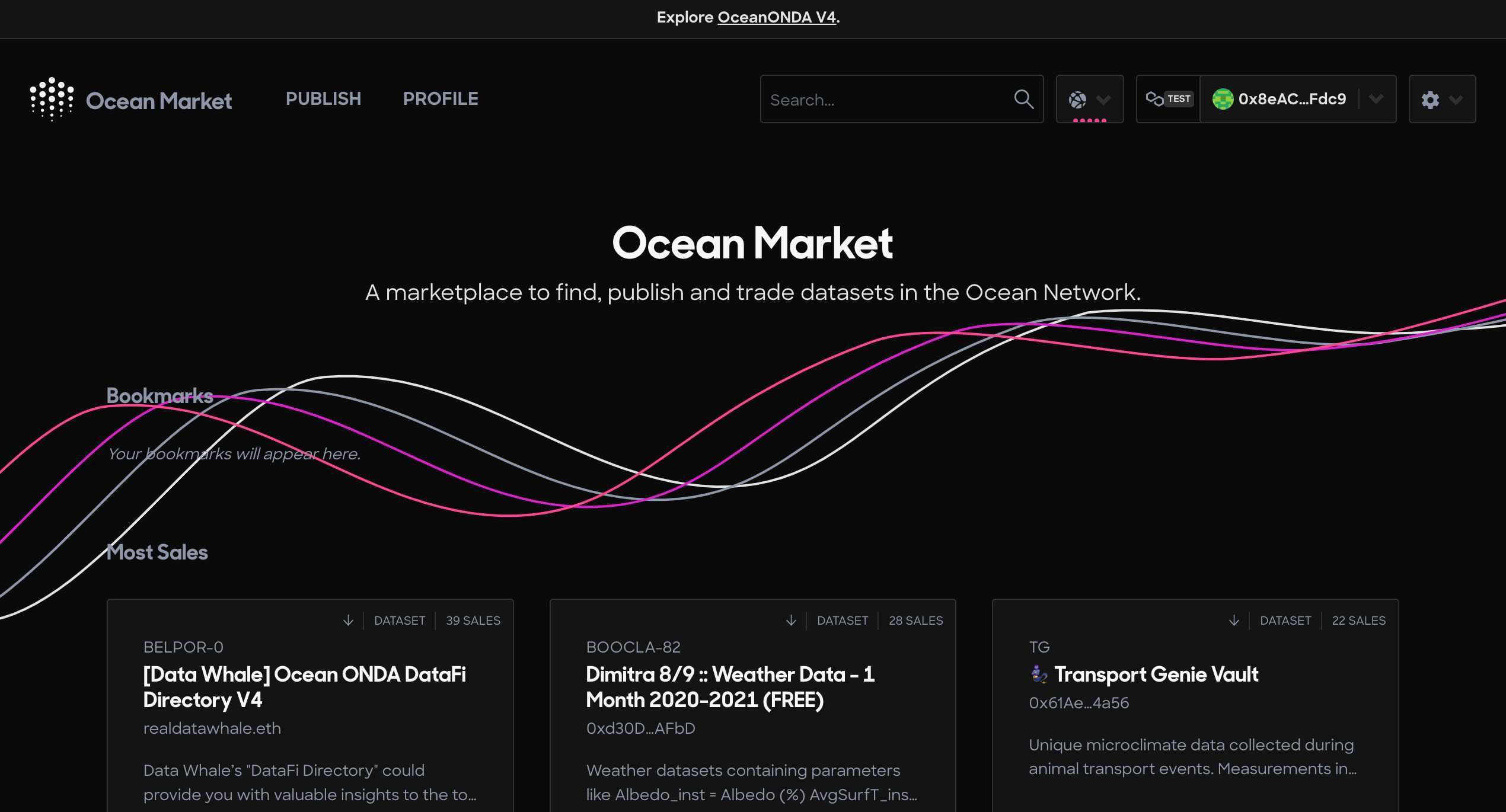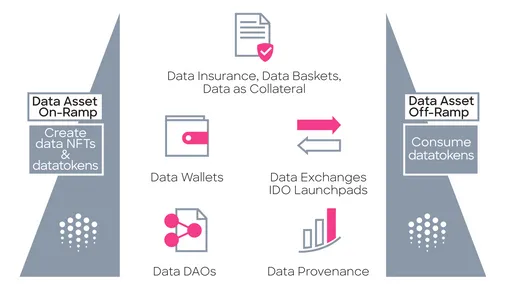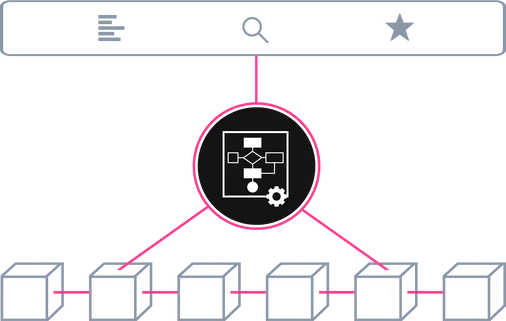| cover | coverY |
|---|---|
| ../.gitbook/assets/cover/developer_tutorials.png | 0 |
Developers
Introduction
Ocean Protocol provides the next generation of open-source tools to unlock data value potential at a large scale. Ocean makes it easy to publish and consume data services on-chain.
Ocean uses Data NFTs (ERC-721) and datatokens (ERC-20) smart contracts as the interface to connect data assets with blockchain and DeFi tools. Crypto wallets become data wallets, crypto exchanges become data marketplaces, DAOs for data co-ops, and more via DeFi composability.
The following guides are a great place to start if you are new to Ocean:
What is our Mission?
To unlock data, for more equitable outcomes for users of data, using a thoughtful application of both technology and governance.
Society is becoming increasingly reliant on data, especially with the advent of AI. However, a small handful of organizations with both massive data assets and AI capabilities attained worrying levels of control which is a danger to a free and open society.
Our team and community is committed to kick-starting a New Data Economy that reaches every single person, company and device, giving power back to data owners and enabling people to capture value from data to better our world.
Find out more about the people building Ocean on our site.
What can you do with Ocean?
Buy or Sell Data
Use Ocean Market to publish and sell data, or browse and buy data. Data is published as interoperable ERC721 data NFTs & ERC20 datatokens. It's a decentralized exchange (DEX), tuned for data. The acts of publishing data, purchasing data, and consuming data are all recorded on the blockchain to make a tamper-proof audit trail.
As a data scientist or AI practitioner, you can benefit from access to more data (including private data), crypto-secured provenance in data & AI training, and income opportunities for selling data and curating data.
The following guides will help you get started with buying and selling data:
Build Your Own Data Market
Use Ocean Protocol software tools to build your own data marketplace, by either forking Ocean Market code or building up with Ocean components.
If you're interested in starting your own marketplace checkout the following guides:
Manage datatokens and data NFTs for use in DeFi
Ocean makes it easy to publish data services (deploy ERC721 data NFTs and ERC20 datatokens), and to consume data services (spend datatokens). Crypto wallets, exchanges, and DAOs become data wallets, exchanges, and DAOs.
Use Ocean JavaScript or Python drivers to manage data NFTs and datatokens:
Ocean-based apps make data asset on-ramps and off-ramps easy for end users. Ocean smart contracts and libraries make this easy for developers. The data itself does not need to be on-chain, just the access control.
Data NFTs are ERC721 tokens representing the unique asset and datatokens are ERC20 tokens to access data services. Each data service gets its own data NFT and one or more type of datatokens.
To access the dataset, you send 1.0 datatokens to the data provider (running Ocean Provider). To give access to someone else, send them 1.0 datatokens. That's it.
Since datatokens are ERC20, and live on Ethereum mainnet, there's a whole ecosystem to leverage.
- Publish and access data services: downloadable files or compute-to-data. Use Ocean to deploy a new ERC721 and ERC20 datatoken contract for each data service, then mint datatokens.
- Transfer datatokens to another owner (or approve & transferFrom).
- And more. Use ERC20 support in web3.js, web3.py and Solidity to connect datatokens with crypto wallets and other DeFi services.
Compute-to-Data
Ocean's "Compute-to-Data" feature enables private data to be bought & sold. You can sell compute access to privately-held data, which never leaves the data owner’s premises. Ocean-based marketplaces enable the monetization of private data while preserving privacy.
Compute-to-data resolves the tradeoff between the benefits of using private data, and the risks of exposing it. It lets the data stay on-premise, yet allows 3rd parties to run specific compute jobs on it to get useful compute results like averaging or building an AI model.
The most valuable data is private data — using it can improve research and business outcomes. But concerns over privacy and control make it hard to access. With Compute-to-Data, private data isn’t directly shared but rather specific access to it is granted.
It can be used for data sharing in science or technology contexts, or in marketplaces for selling private data while preserving privacy, as an opportunity for companies to monetize their data assets.
Private data can help research, leading to life-altering innovations in science and technology. For example, more data improves the predictive accuracy of modern Artificial Intelligence (AI) models. Private data is often considered the most valuable data because it’s so hard to get at, and using it can lead to potentially big payoffs.
Checkout these guides if you are aiming to get a deeper understanding on how compute-to-data works:
How does it work?
In Ocean Protocol, each asset gets its own ERC721 data NFT and one(or more) ERC20 datatokens. This enables data wallets, data exchanges, and data co-ops by directly leveraging crypto wallets, exchanges, and more.
Ocean Protocol provides tools for developers to build data markets, and to manage data NFTs and datatokens for use in DeFi.
If you are new to web3 and blockchain technologies then we suggest you first read these introductory guides:
If ou are looking to get to grips with the inner workings of Ocean, then you'll be interested in the following guides:
- Architecture Overview
- Data NFTs and Datatokens
- Networks
- Fees
- Asset pricing
- DID & DDO
- Roles
- Set Up a Marketplace
- Compute-to-Data
- Deploying components
- Contributing
Supporters
GitBook is a supporter of this open source project by providing hosting for this documentation.
